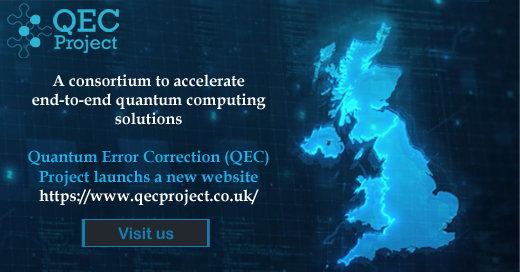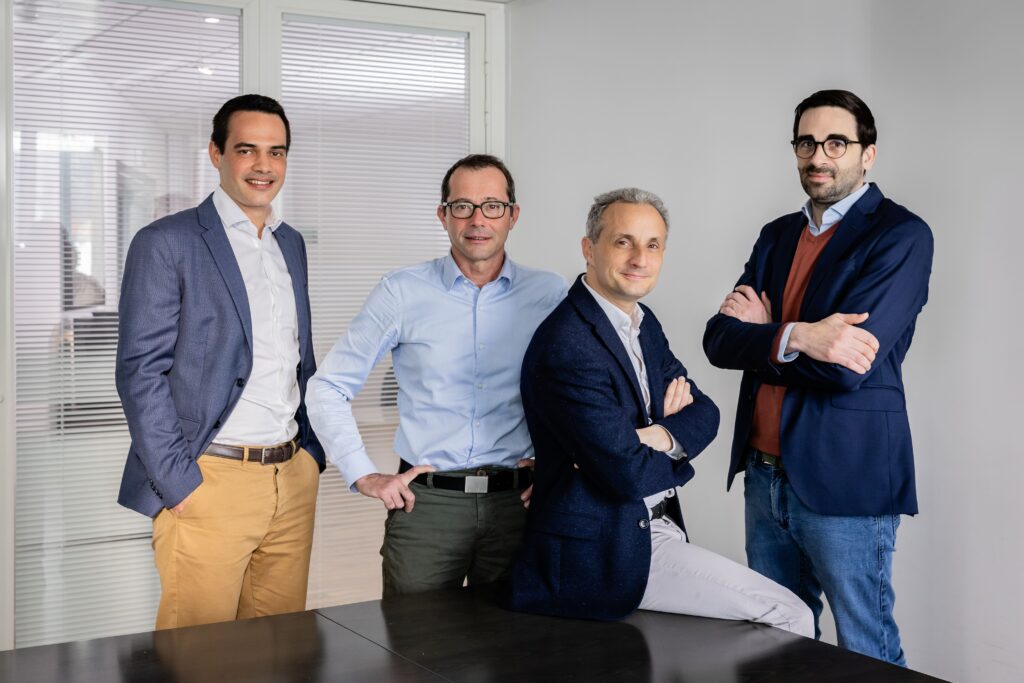Insider Brief
- The Quantum Error Correction — QEC — Project website was designed to promote and communicate the consortium’s purpose, its activities and operations, and to provide stakeholders with easier and faster access to useful content.
- The website will reflect the consortium’s approaches to building an error-corrected quantum computer capable of delivering commercially valuable computation advantage.
- The consortium of 11 partners, led by Universal Quantum, aims to commercialise an end-to-end quantum computing solution.
- The project is funded through Innovate UK’s Industrial Strategy Challenge.
Keep updated on the industry by checking out recent quantum computing news.
PRESS RELEASE — The Quantum Error Correction (QEC) Project in the UK has launched its official website: https://www.qecproject.co.uk/ , to promote and communicate the consortium’s purpose, its activities and operations, and to provide stakeholders with easier and faster access to useful content. Funded by Innovate UK’s Industrial Strategy Challenge, the QEC Project website will reflect the consortium’s innovative approaches to building an error-corrected quantum computer capable of overcoming today’s noisy intermediate-scale quantum (NISQ) computer challenge and delivering commercially valuable computation advantage.
Dr Sebastian Weidt, CEO and co-founder at Universal Quantum, said: “The QEC Project will tackle a major challenge to make quantum computers commercially viable, correcting the errors that quantum bits – qubits – are prone to. This consortium is an important step forward, bringing together experts at the software, hardware and end-user level and helping us build truly scalable quantum computers to solve some of the world’s most pressing problems.

The consortium of 11 partners, led by Universal Quantum, aims to commercialise an end-to-end quantum computing solution. The project enables government, academia, and industry to collaboratively develop the first cloud-accessible, error-corrected, scalable quantum computer based on scalable trapped-ion technology and apply this technology for high-impact Computational Fluid Dynamics (CFD) simulations primarily in the aerospace industry.
Prof. Leigh Lapworth, Rolls-Royce Fellow – Computational Science, said: “Quantum computers have the potential to revolutionise the way we design our products but, we believe, will require fault tolerant devices. This is why we are excited to be part of the QEC project and leading the work package on quantum CFD algorithms. Even at this early stage we are working with partners Riverlane and STFC to emulate quantum CFD solvers at scales that haven’t been done before.”
The QEC Project brings together quantum hardware and software experts, creating a new quantum ecosystem to solve one of the major challenges in making quantum computers fully commercially viable.
The new website clearly highlights the consortium’s three main challenges in building the quantum computer which include – build scalable quantum computer hardware, develop error-correction software, and translate quantum computing solutions into real commercial benefits. The user can easily navigate to the individual pages to learn more about the technical challenges.
A key piece of functionality on the website is the Latest News. All the latest updates regarding the consortium activities such as progress of consortium’ members, conferences or event participations can be found here. As the project develops, further opportunities for external engagement will emerge.
In the Partners section the user can discover thorough information about the consortium partners and their roles in the QEC Project from each partner which are briefly covered below:
- Universal Quantum’s blueprint for a trapped ion–based scalable quantum computer module will make it possible to create a scalable quantum computer architecture in the QEC Project.
- Edwards, CPI TMD Technologies, and Diamond Microwaves provide vacuum hardware and microwave expertise to support a fully functioning platform for QEC Quantum Computer.
- Riverlane will take advantage of the flexible architecture provided by the Universal Quantum hardware to develop a state-of-the-art quantum error correction software tool.
- Rolls Royce will investigate the quantum algorithms for CFD simulations for the aerospace industry, in collaboration with STFC Hartree Centre.
- Academic research groups at Imperial College London and the University of Sussex will contribute to the design of quantum error correction techniques to be developed with other project partners.
- Commercialisation partners Sia Partners and Qureca will exploit and disseminate the QEC Project results and capabilities of partnerships within the consortium.
About QEC Project
The Quantum Error Correction (QEC) Project is a consortium led by Universal Quantum that aims to build the first cloud-accessible, error-corrected, scalable quantum computer based on scalable trapped-ion technology capable of correcting its own errors and apply this technology to high-impact Computational Fluid Dynamics (CFD) use-cases in the aerospace industry. The QEC Project includes 11 partners working together on three technical challenges to accelerate the transition towards quantum advantage and realise the true potential of large-scale fault-tolerant quantum computers.
Website: https://www.qecproject.co.uk/
If you found this article to be informative, you can explore more current quantum news here, exclusives, interviews, and podcasts.
















